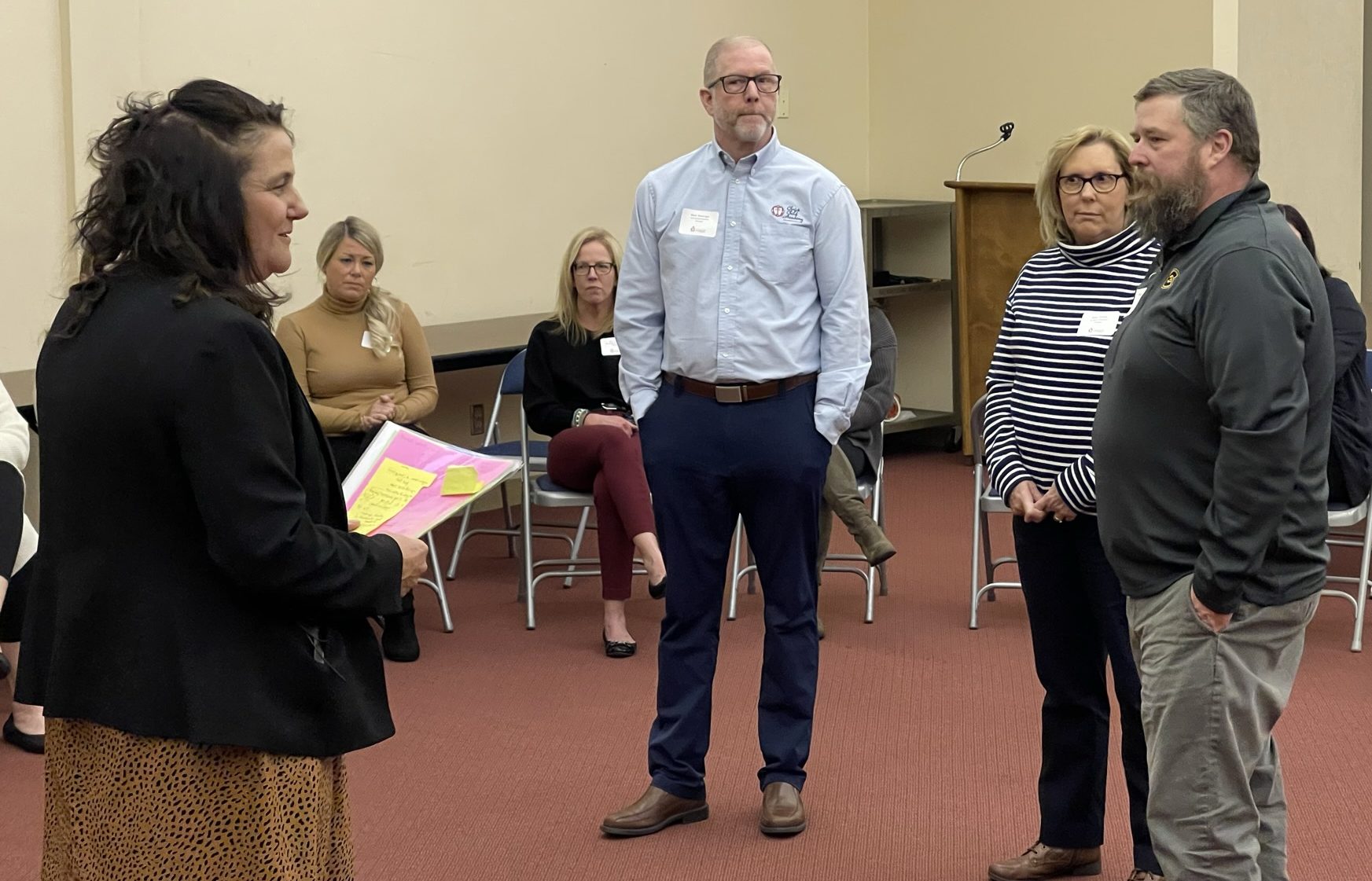
Educators from local Catholic schools participate in an ice-breaker activity during a two-day workshop at Mary Mother of the Church Pastoral Center. (Photo by Larry Hanson)
When a critical event occurs, whether it involves one student or the whole school community, the school plays an essential role in the response.
Associate Superintendent of Catholic Schools Bruce Varick said that’s why he invited the National Association of School Psychologists to present its two-day workshop geared toward empowering school staff members to provide much-needed emotional, spiritual and psychological support to their students if such an event occurs. Varick had taken the training over the summer.
In early December, Mary Mother of the Church Pastoral Center in St. Francis hosted 37 participants from 19 archdiocesan schools, along with Mount Mary University and Alverno College.
St. Mary’s Visitation School Principal Mary Tretow said the workshop went beyond her expectations.
“I was given a road map for my students, staff and families on how to begin to provide mental health interventions in any crisis situation,” Tretow said.
The workshop provided training on how to prevent and prepare for crises; reaffirm physical health and welfare, and perceptions of safety and security; evaluate psychological trauma risk; provide interventions; respond to mental health needs; and examine the effectiveness of crisis preparedness. Those steps are both sequential and hierarchical.
The learning objectives for the workshop explained how it “develops the knowledge and skill required to provide immediate mental health crisis interventions to the students, staff and school community members who have been simultaneously exposed to an acute traumatic stressor.”
Said Varick: “We offered this workshop as a key element to comprehensive emergency operations planning for schools. This encompasses stabilizing the immediate situation, ensuring the sense of physical and emotional safety of all, and understanding and supporting the psychological needs of everyone impacted by the event. Sometimes a well-meaning individual can do more harm than good in trying to help. This training lays a foundation in how to respond in an appropriate manner.”
The presenters (Trish Kilpin and Susan Williams) pointed out critical events are not just those that end up on the evening news. A critical event refers to any event that can cause a disruption in a school environment, such as the loss of a community member after an illness or suicide, or even a non-fatal event such as a sports injury or a school bus accident. Often, after such an event occurs, students have questions or need to talk about their experiences in a safe environment.
The presenters explained students find comfort in hearing from the people they know. This training is intended to coach the teachers who know the students best so they can present calm empathy in the time of trauma. Those in the sessions were reminded to also be mindful of teachers’ own experiences and traumas when preparing them for these situations.
The training further discussed the importance of having clear, well-formed responses for students that all staff members can use and adhere to. In an increasingly digital age, it is easy for students to hear and share rumors or misinformation. This can lead to unnecessary fear and emotional distress among the students. One way to combat this is to brainstorm possible questions students will have before the staff member is asked and to give teachers a way to table questions they did not expect for a later discussion.
The National Association of School Psychologists developed the curriculum as part of its “decade-long leadership in providing evidence-based resources and consultation related to school crisis prevention and response.”
